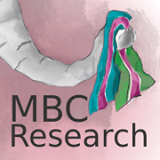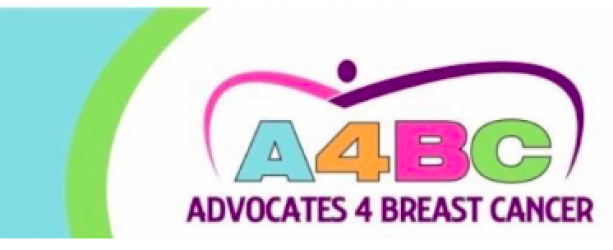 We all know that October is Breast Cancer Awareness month. There’s pink everywhere and all sorts of breast cancer awareness campaigns. In 2009 Metastatic Breast Cancer (MBC) got one day for awareness. Thanks to the efforts of 9 metastatic patients and countless others, they got congress to designate October 13th as Metastatic Breast Cancer Awareness Day. It’s a start. “Breast Cancer Awareness” without “Mets Awareness” is not awareness at all. Now we need everyone to be aware of MBC all year-long. Every day should be Metastatic Breast Cancer Day.
We all know that October is Breast Cancer Awareness month. There’s pink everywhere and all sorts of breast cancer awareness campaigns. In 2009 Metastatic Breast Cancer (MBC) got one day for awareness. Thanks to the efforts of 9 metastatic patients and countless others, they got congress to designate October 13th as Metastatic Breast Cancer Awareness Day. It’s a start. “Breast Cancer Awareness” without “Mets Awareness” is not awareness at all. Now we need everyone to be aware of MBC all year-long. Every day should be Metastatic Breast Cancer Day.

 Especially in October (Breast Cancer Awareness Month) there have been lots of questioning of the words, the color and what really matters. There’s frustration in the breast cancer community because breast cancer has been painted with survivors and death rates trending in a favorable direction. Sadly when it comes to MBC and death rates we haven’t come very far.
Especially in October (Breast Cancer Awareness Month) there have been lots of questioning of the words, the color and what really matters. There’s frustration in the breast cancer community because breast cancer has been painted with survivors and death rates trending in a favorable direction. Sadly when it comes to MBC and death rates we haven’t come very far.
For example in the United States alone in 1991 there were about 112 deaths from breast cancer a day. This year there are about 108 deaths a day in the US. While those 4 lives a day are very important people I don’t think that in over 20 years preventing 4 deaths a day is tremendous progress in this country. There are about 155,000 people living with MBC in the US a year. There are almost 40,000 deaths a year from MBC in the US and around 400 of these deaths are men.
 Almost 30% of all breast cancers become metastatic. Some start out with “mets” (about 6-10% of cases) but if you get breast cancer at an earlier stage there’s up to a 30% chance that you will become metastatic. Those who have MBC know this. We still don’t know the cause of many breast cancers and we also don’t know why breast cancer patients become metastatic.
Almost 30% of all breast cancers become metastatic. Some start out with “mets” (about 6-10% of cases) but if you get breast cancer at an earlier stage there’s up to a 30% chance that you will become metastatic. Those who have MBC know this. We still don’t know the cause of many breast cancers and we also don’t know why breast cancer patients become metastatic.
 There is no cure for MBC. There are many drugs that can extend lives for years, but treatment is life long switching from drugs that work for a period of time until a drug no longer works. Every case is different and there are different types with some types more difficult to treat than others.
There is no cure for MBC. There are many drugs that can extend lives for years, but treatment is life long switching from drugs that work for a period of time until a drug no longer works. Every case is different and there are different types with some types more difficult to treat than others.
What we do know is that MBC kills very special people. When it comes to breast cancer, people’s stories paint the picture of what happens with this disease. One of them was my fearless friend Li Bailey. In our world of social media very few people knew her. She didn’t have a blog, Facebook page or Twitter account. She had Triple Negative (TNBC) MBC and there were fewer options for her treatment. She knew every detail of her case, and was a very sharp ePatient.
Li and I went through our primary chemo together at the same time. We got together a lot as friends and it was a relief that I wasn’t bald alone. We learned so much about breast cancer together. I had a local recurrence. Today I am NED (no evidence of disease). She had a mets recurrence on her birthday, February 19, 2009. She danced in to the light on January 6, 2012. She went through various treatment options that were wonderful when they worked. Having to change regimens is a harsh reality for anyone with mets. While my friend did not live as long as I would have liked with mets, there are so many cases with different outcomes. I have lots of friends that respond longer to treatments who are living with mets for a very long time.
Li had a wonderful ability of living in the moment with me on a great day. I’m not saying there weren’t some bad ones but we made a pact that on great ones we would be in the moment.

 One of the best days was when Li got her dog Shelby as a puppy after we finished our primary chemo. I am so grateful that she chose me to take care of her dog. I loved visiting her and Shelby so many times. Shelby helps me every day keeping memories of Li alive. She is such a wonderful gift. I know Li would be proud of how well Shelby is doing, while she is a constant source of joy in my life.
One of the best days was when Li got her dog Shelby as a puppy after we finished our primary chemo. I am so grateful that she chose me to take care of her dog. I loved visiting her and Shelby so many times. Shelby helps me every day keeping memories of Li alive. She is such a wonderful gift. I know Li would be proud of how well Shelby is doing, while she is a constant source of joy in my life.
There’s not a day that goes by that I don’t think of Li and all my mets sisters living and dying from MBC. I was very lucky that Li let me in to her life with mets and accepted my help. It’s so rewarding to able to help. Li helped me a lot too. She never missed being with me for my many surgeries and I was with her for hers. Having one day for MBC awareness is a start, but we have a long way to go and there should be many more days of awareness for MBC. As patient advocates we have to make metastatic research a priority. We must stop this terrible disease and prevent it from spreading to other organs. This research will hopefully lead to helping end all cancers.











